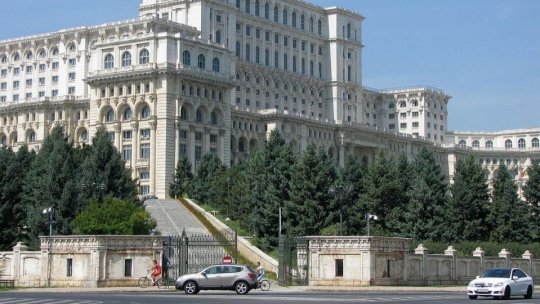Labour Code, stuck in negotiations
Collective contracts appear to be the main reason for disagreement, because, according to the unions, the Government would rather eliminate collective contracts from the new legislation.

Articol de Diana Domenico, 04 Februarie 2011, 10:41
The negotiations concerning the new Labour Code seem to be stuck again. After Wednesday ineffective discussions between the Government officials and social partners, it has not been established any new precise date for the resumption of the negotiations.
Collective contracts appear to be the main reason for disagreement, because, according to the unions, the Government would rather eliminate collective contracts from the new legislation.
The dissolution of the individual contract at national level would entail the loss of some guarantees offered to the employee concerning the gained salary or the working program, the unions and a part of the employers assert.
This contract stipulates certain rules that the employee and the employer must take into consideration during the negotiation of an individual contract, which would mean that, once the contract is eliminated, the minimum standards which establish the labour market, would also disappear.
So, employer abuses may appear – the Vice President of Cartel Alfa, Petru Dandea, thinks.
‘The main role of the collective labour contract individual at national level was to protect the employees of the companies where are no unions and no collective labour contract at company level. The dissolution of the collective labour contract at national level leaves without contractual cover 1.6 million workers in the private field’, Petru Dandea explained.
The lack of some minimum conditions, stipulated in the individual contract, offers the employer more freedom in employee’s detriment, being possible even to employ without documents in order and offer minimum salary for certain jobs – the Labour Code attorney, Elena Cătălina Bordianu, also believes.
‘The employees will be in the position when they will not have guaranteed their salaries or schedule. This way either jobs without work passport or very low salaries will emerge. There must be a balance and, at this moment, in Romania in 2011, it is properly this collective labour contract at national level to be maintained because the many employers rights are guaranteed, to a certain extent’, Elena Cătălina Bordianu thinks.
A few weeks ago, the director for Social Dialogue within the Ministry of Labour, Serghei Mesaroş, stated that it was not possible to propose the dissolution of a collective labour contract, but that this must be applied to an entire field only if it is signed by at least half of those who are covered by the contract.
Asked if it is intended the elimination of the collective labour contract, the prime minister said Wednesday, after the Government meeting, that this was one of the subject upon which they did not come to terms and that negotiations would continue.
Translated by: Lidia Enăsoiu
MA Student, MTTLC, Bucharest University













